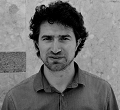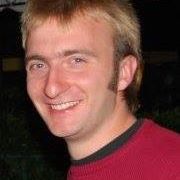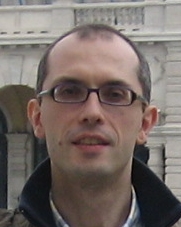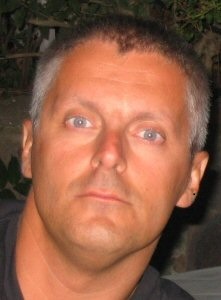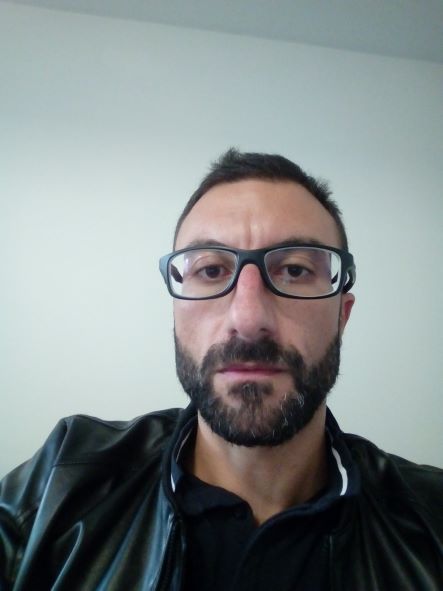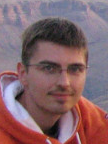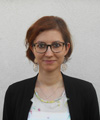Studying at the University of Verona
Here you can find information on the organisational aspects of the Programme, lecture timetables, learning activities and useful contact details for your time at the University, from enrolment to graduation.
Academic calendar
The academic calendar shows the deadlines and scheduled events that are relevant to students, teaching and technical-administrative staff of the University. Public holidays and University closures are also indicated. The academic year normally begins on 1 October each year and ends on 30 September of the following year.
Course calendar
The Academic Calendar sets out the degree programme lecture and exam timetables, as well as the relevant university closure dates..
| Period | From | To |
|---|---|---|
| Semester 1 | Oct 3, 2022 | Jan 27, 2023 |
| Semester 2 | Mar 6, 2023 | Jun 16, 2023 |
| Session | From | To |
|---|---|---|
| Sessione invernale d'esame | Jan 30, 2023 | Mar 3, 2023 |
| Sessione estiva d'esame | Jun 19, 2023 | Jul 31, 2023 |
| Sessione autunnale d'esame | Sep 4, 2023 | Sep 29, 2023 |
| Session | From | To |
|---|---|---|
| Sessione Estiva | Jul 18, 2023 | Jul 18, 2023 |
| Sessione Autunnale | Oct 13, 2023 | Oct 13, 2023 |
| Sessione Invernale | Mar 13, 2024 | Mar 13, 2024 |
| Period | From | To |
|---|---|---|
| Ponte Festa di tutti i Santi | Oct 31, 2022 | Nov 1, 2022 |
| Ponte dell'Immacolata Concezione | Dec 8, 2022 | Dec 9, 2022 |
| Vacanze natalizie | Dec 23, 2022 | Jan 8, 2023 |
| Vacanze di Pasqua | Apr 7, 2023 | Apr 10, 2023 |
| Festa della Liberazione | Apr 24, 2023 | Apr 25, 2023 |
| Festa del lavoro | May 1, 2023 | May 1, 2023 |
| Festa del Santo Patrono | May 21, 2023 | May 21, 2023 |
| Festa della Repubblica | Jun 2, 2023 | Jun 2, 2023 |
| Chiusura estiva | Aug 14, 2023 | Aug 19, 2023 |
Exam calendar
Exam dates and rounds are managed by the relevant Science and Engineering Teaching and Student Services Unit.
To view all the exam sessions available, please use the Exam dashboard on ESSE3.
If you forgot your login details or have problems logging in, please contact the relevant IT HelpDesk, or check the login details recovery web page.
Academic staff
 mariano.ceccato@univr.it
mariano.ceccato@univr.it
 giovannigerardo.muscolo@univr.it
giovannigerardo.muscolo@univr.it
 daniela.pianezzi@univr.it
daniela.pianezzi@univr.it
 claudio.tomazzoli@univr.it
claudio.tomazzoli@univr.it
Study Plan
The Study Plan includes all modules, teaching and learning activities that each student will need to undertake during their time at the University.
Please select your Study Plan based on your enrollment year.
1° Year
| Modules | Credits | TAF | SSD |
|---|
2° Year activated in the A.Y. 2023/2024
| Modules | Credits | TAF | SSD |
|---|
| Modules | Credits | TAF | SSD |
|---|
| Modules | Credits | TAF | SSD |
|---|
| Modules | Credits | TAF | SSD |
|---|
Legend | Type of training activity (TTA)
TAF (Type of Educational Activity) All courses and activities are classified into different types of educational activities, indicated by a letter.
Laboratorio per la progettazione dei sistemi (2022/2023)
Teaching code
4S009016
Academic staff
Coordinator
Credits
6
Language
English
Scientific Disciplinary Sector (SSD)
INF/01 - INFORMATICS
Period
Semester 2 dal Mar 6, 2023 al Jun 16, 2023.
Learning objectives
The objective of this class is to develop classroom and laboratory activities which complete by hands-on experience the instructional project of introducing theory and practice of model-based design of cyber-physical systems, as a companion to the theoretical class titled Discrete Event and Hybrid Systems (see the related information). Such systems include discrete heterogeneous and concurrent components at different levels of abstraction, interacting with continuous environments both natural and artificial. This lab introduces the practice of formal methods by describing the existing tools to specify, analyze and synthesize cyber-physical systems. Specifically, the laboratory activity will involve modeling and analysis of systems coming from the Industry 4.0 domain, with a particular focus on robotic systems. At the end the student will be able to demonstrate with a practical project hands-on expertise when using advanced model-based design tools for the specification, analysis and synthesis of cyber-physical systems. This expertise will enable the student to use existing libraries: i) to represent discrete-event and hybrid systems by means of languages, automata, and logics; ii) to analyze their behaviour by formal verification techniques; iii) to synthesize supervisory controllers of plants described by automata with uncontrollable and unobservable events. At the end of the class the student will be able to: i) evaluate autonomously advantages and disadvantages of different choices of specification formalisms, and of algorithms for the analysis and synthesis of discrete-event and hybrid systems; ii) work together with application-domain specialists to choose the formal models suitable for the specification, analysis and control of a given system; iii) carry on independent study of recent literature.
Prerequisites and basic notions
Discrete event and hybrid systems.
Program
Representation of formal models for systems
-------------------------------------------
Formal models for discrete event systems
Boolean functions and networks
Decision diagrams
Multi-valued and temporal logica
Finite automata and omega-automata
Discrete event systems
----------------------
Modeling of plants and control requirements with finite state automata
Supervisory control
Eclipse Supervisory Control Engineering Toolkit (ESCET)
Compositional Interchange Format (CIF specification language)
Simulation
Automated synthesis of supervisory controllers
Design of graphical user interfaces in SVG
Hybrid Systems
--------------
Hybrid automata and tools for their analysis
Reachability analysis and set representations
Algorithms for hybrid reachability
Complex systems and their analysis
From static analysis to dynamic analysis
Bibliography
Didactic methods
Classroom lectures and laboratory activities.
The class consists of three subunits (Formal models for systems, Discrete event systems, Hybrid systems).
Learning assessment procedures
The class consists of three subunits (Formal models for systems, Discrete event systems, Hybrid systems).
Every student will select a project in one of them
and solve one laboratory exercise in each of them.
Evaluation criteria
Capability to model examples of discrete event and hybrid systems with the formal models and libraries introduced in the classroom.
Criteria for the composition of the final grade
Every student will work out a laboratory exercise in each of them, and select a project in one of them.
The grade will be composed as follows: 21/30 project,
3/30 x 3 = 9/30 lab. exercises, total 30/30.
Exam language
English
Teaching materials e documents
-
 Automa temporizzato di un termostato (Timed automaton of a thermostat)
(pdf, en, 837 KB, 07/04/23)
Automa temporizzato di un termostato (Timed automaton of a thermostat)
(pdf, en, 837 KB, 07/04/23)
-
 Automi estesi in ESCET (Extended automata in ESCET)
(pdf, en, 911 KB, 02/05/23)
Automi estesi in ESCET (Extended automata in ESCET)
(pdf, en, 911 KB, 02/05/23)
-
 Automi ibridi in ESCET (Hybrid automata in ESCET)
(pdf, en, 837 KB, 21/04/23)
Automi ibridi in ESCET (Hybrid automata in ESCET)
(pdf, en, 837 KB, 21/04/23)
-
 Benvenuto (Welcome)
(pdf, en, 1117 KB, 13/03/23)
Benvenuto (Welcome)
(pdf, en, 1117 KB, 13/03/23)
-
 CUDD
(pdf, en, 507 KB, 07/04/23)
CUDD
(pdf, en, 507 KB, 07/04/23)
-
 Diagrammi di decisione binari (Binary decision diagrams)
(x-gzip, en, 232 KB, 20/04/23)
Diagrammi di decisione binari (Binary decision diagrams)
(x-gzip, en, 232 KB, 20/04/23)
-
 Esempio di produttore-consumatore (Example of producer-consumer)
(pdf, en, 413 KB, 28/03/23)
Esempio di produttore-consumatore (Example of producer-consumer)
(pdf, en, 413 KB, 28/03/23)
-
 Esercizio-MZ (Homework-MZ)
(pdf, en, 60 KB, 19/05/23)
Esercizio-MZ (Homework-MZ)
(pdf, en, 60 KB, 19/05/23)
-
 Esercizio-TV (Homework-TV)
(pdf, en, 50 KB, 20/04/23)
Esercizio-TV (Homework-TV)
(pdf, en, 50 KB, 20/04/23)
-
 HermesBDD
(pdf, en, 1676 KB, 27/04/23)
HermesBDD
(pdf, en, 1676 KB, 27/04/23)
-
 Insieme sicuro massimale (Maximal safe set)
(pdf, it, 2378 KB, 21/05/23)
Insieme sicuro massimale (Maximal safe set)
(pdf, it, 2378 KB, 21/05/23)
-
 Introduzione agli automi ibridi (An introduction to hybrid automata)
(pdf, en, 4691 KB, 09/05/23)
Introduzione agli automi ibridi (An introduction to hybrid automata)
(pdf, en, 4691 KB, 09/05/23)
-
 Introduzione (Introduction)
(pdf, en, 765 KB, 13/03/23)
Introduzione (Introduction)
(pdf, en, 765 KB, 13/03/23)
-
 La libreria ESCET (The library ESCET)
(pdf, en, 2914 KB, 13/03/23)
La libreria ESCET (The library ESCET)
(pdf, en, 2914 KB, 13/03/23)
-
 Ponte con due semafori (Bridge with two semaphors)
(pdf, en, 454 KB, 04/04/23)
Ponte con due semafori (Bridge with two semaphors)
(pdf, en, 454 KB, 04/04/23)
-
 Producer-consumer (class notes - English version)
(pdf, en, 696 KB, 28/03/23)
Producer-consumer (class notes - English version)
(pdf, en, 696 KB, 28/03/23)
-
 Produttore-consumatore (appunti in italiano)
(pdf, it, 386 KB, 28/03/23)
Produttore-consumatore (appunti in italiano)
(pdf, it, 386 KB, 28/03/23)
-
 Rete di distribuzione del gas (Gas distribution network)
(pdf, en, 597 KB, 07/04/23)
Rete di distribuzione del gas (Gas distribution network)
(pdf, en, 597 KB, 07/04/23)
-
 Stuzzichino (Teaser)
(pdf, en, 3424 KB, 02/03/22)
Stuzzichino (Teaser)
(pdf, en, 3424 KB, 02/03/22)
-
 SVG in ESCET
(pdf, en, 1511 KB, 23/03/23)
SVG in ESCET
(pdf, en, 1511 KB, 23/03/23)
-
 ToolDef in ESCET
(pdf, en, 4835 KB, 21/03/23)
ToolDef in ESCET
(pdf, en, 4835 KB, 21/03/23)
Type D and Type F activities
The educational activities of type D are chosen by the student, those of type F are further knowledge useful for entering the world of work (internships, soft skills, project works, etc.). According to the Didactic Regulations of the Course, some activities can be chosen and included autonomously in the booklet, others must be approved by a special committee to verify their consistency with the study plan. Type D or F educational activities can be covered by the following activities.
1. Teachings taught at the University of Verona.
Include the teachings listed below and/or in the Course Catalogue (which can also be filtered by language of delivery via Advanced Search).
Booklet entry mode: if the teaching is included among those listed below, the student can include it autonomously during the period in which the study plan is open; otherwise, the student must submit a request to the Secretariat, sending the form to carriere.scienze@ateneo.univr.it during the period indicated.
2. CLA certificate or language equivalency.
In addition to those required by the curriculum, the following are recognized for those matriculated from A.Y. 2021/2022:
- English language: 3 CFUs are recognized for each level of proficiency above the one required by the course of study (if not already recognized in the previous course of study).
- Other languages and Italian for foreigners: 3 cfu are recognized for each proficiency level starting from A2 (if not already recognized in the previous study cycle).
These cfu will be recognized, up to a maximum of 6 cfu in total, as type F if the teaching plan allows, or as type D. Additional elective credits for language knowledge may be recognized only if consistent with the student's educational project and if adequately justified.
Those enrolled until A.Y. 2020/2021 should consult the information found here.
Booklet entry mode: request the certificate or equivalency to the CLA and send it to the Student Secretariat - Careers for career entry of the exam, via email: carriere.scienze@ateneo.univr.it
3. Soft skills
Discover the training paths promoted by the University's TALC - Teaching and learning center, intended for students regularly enrolled in the academic year of course delivery https://talc.univr.it/it/competenze-trasversali
Booklet entry mode: the teaching is not expected to be included in the curriculum. Only after obtaining the Open Badge, the CFUs in the booklet will be automatically validated. The registration of CFUs in career is not instantaneous, but there will be some technical time to wait.
4. CONTAMINATION LAB
The Contamination Lab Verona (CLab Verona) is an experiential course with modules on innovation and enterprise culture that offers the opportunity to work in teams with students from all areas to solve challenges set by companies and organisations.
Upon completion of a CLab, students will be entitled to receive 6 CFU (D- or F-type credits).
Find out more: https://www.univr.it/clabverona
PLEASE NOTE: In order to be admitted to any teaching activities, including those of your choice, you must be enrolled in the academic year in which the activities in question are offered. Students who are about to graduate in the December and April sessions are therefore advised NOT to undertake extracurricular activities in the new academic year in which they are not enrolled, as these graduation sessions are valid for students enrolled in the previous academic year. Therefore, students who undertake an activity in an academic year in which they are not enrolled will not be granted CFU credits.
5. Stage/internship period
In addition to the CFUs required by the curriculum (check carefully what is indicated on the Didactic Regulations): here information on how to activate the internship.
Teachings and other activities that can be entered autonomously in the booklet
| years | Modules | TAF | Teacher |
|---|---|---|---|
| 1° 2° | Introduction to Robotics for students of scientific courses. | D |
Paolo Fiorini
(Coordinator)
|
| 1° 2° | Matlab-Simulink programming | D |
Bogdan Mihai Maris
(Coordinator)
|
| 1° 2° | Rapid prototyping on Arduino | D |
Franco Fummi
(Coordinator)
|
| 1° 2° | Programming Challanges | D |
Romeo Rizzi
(Coordinator)
|
| years | Modules | TAF | Teacher |
|---|---|---|---|
| 1° 2° | Introduction to 3D printing | D |
Franco Fummi
(Coordinator)
|
| 1° 2° | Python programming language | D |
Carlo Combi
(Coordinator)
|
| 1° 2° | HW components design on FPGA | D |
Franco Fummi
(Coordinator)
|
| 1° 2° | Protection of intangible assets (SW and invention)between industrial law and copyright | D |
Roberto Giacobazzi
(Coordinator)
|
| years | Modules | TAF | Teacher |
|---|---|---|---|
| 1° 2° | Federated learning from zero to hero | D |
Gloria Menegaz
|
Career prospects
Module/Programme news
News for students
There you will find information, resources and services useful during your time at the University (Student’s exam record, your study plan on ESSE3, Distance Learning courses, university email account, office forms, administrative procedures, etc.). You can log into MyUnivr with your GIA login details: only in this way will you be able to receive notification of all the notices from your teachers and your secretariat via email and soon also via the Univr app.
Graduation
Deadlines and administrative fulfilments
For deadlines, administrative fulfilments and notices on graduation sessions, please refer to the Graduation Sessions - Science and Engineering service.
Need to activate a thesis internship
For thesis-related internships, it is not always necessary to activate an internship through the Internship Office. For further information, please consult the dedicated document, which can be found in the 'Documents' section of the Internships and work orientation - Science e Engineering service.
Final examination regulations
Upon completion of the Master’s degree dissertation, students are awarded 24 CFU, which equates to no more than 4-5 months of full-time work.
Goals
The primary goal of a dissertation is to develop an original study that may include an application project or a theoretical topic related to specific design issues, or a critical review of the most recent developments in a given field of study. During the preparation of the dissertation, under the guidance of the Supervisor and co-supervisors (if any), the student is expected to conduct an in- depth study of the chosen topic, while gaining the ability to summarise and creatively apply the knowledge acquired. The dissertation should focus on topics of engineering and computer science, or closely related areas of study. The work shall consist in the written presentation of activities that may be structured as follows:
- design and development of applications or systems;
- critical analysis of contributions from the scientific literature;
- original research contributions.
The dissertation shall be written in English and can be presented either in English or in Italian, also relying on multimedia tools such as presentations and videos.
Assessment methods and examination procedures
Each dissertation can be either internal or external, depending on whether it is carried out at the University of Verona or in collaboration with another institution. For each dissertation a Supervisor, one or more co-supervisors (optional) and an Examiner will be appointed. The Examiner is appointed by the Computer Science Teaching Committee at least 20 days before the presentation of the dissertation, once the student's eligibility to take the Master's degree examination has been verified. With regard to the legal aspects related to the dissertation and its scientific outcomes (e.g. intellectual property of research outcomes), please refer to the relevant legislation and the University Regulations.
Evaluation of the dissertation
The Supervisor, the co-supervisor/s (if any) and the Examiner will evaluate the dissertation based on the following criteria:
- level of in-depth analysis carried out, in relation to the most recent developments in the areas related to information technology, with a focus on medical and biological applications;
- scientific and/or technological outcomes of the dissertation;
- student’s critical thinking;
- student’s experimental and/or formal development;
- student’s ability to carry out independent work (this point will not be assessed by the Examiner);
- value of the methodologies used;
- accuracy in planning and writing the dissertation.
Graduation mark
The graduation mark (based on a 110-point scale) is a whole value between 66/110 and 110/110 and is calculated by adding together the following elements (then rounding the result to the nearest whole number, e.g. 93.50 => 94; 86.49 => 86):
- 1) the average of the marks gained in the modules, weighted according to CFU, converted to a 110-point scale;
- 2) evaluation of the dissertation and the oral presentation during the final examination, based on the following methods:
- a) each of the points 1-7 listed above will be assigned a coefficient between 0 and 1 (fractional coefficient with one decimal place);
- b) the quality of the presentation will be assessed by awarding a coefficient between 0 and 1 (fractional coefficient with one decimal place);
- c) the sum of the points resulting from (a) and (b).
The Graduation Committee may award one extra point in the following cases: cum laude honours obtained in the exams taken during the degree programme; participation in internships officially recognised by the Computer Science Teaching Committee; taking extra modules; and the achievement of the degree in a time that is shorter than the normal duration of the degree programme. If the final score is 110/110, the Graduation Committee may award cum laude honours by unanimous decision.
External dissertations
An external dissertation is a work carried out in collaboration with an institution/body other than the University of Verona. In this case, the topic of the dissertation must be agreed in advance with a Supervisor from the University of Verona. In addition, the student must indicate at least one co- supervisor belonging to the external institution/body, who will support the student during the work on the dissertation. The Supervisor and the co- supervisors must be indicated in the online graduation application. The insurance aspects relating to the student's stay at the external institution are regulated by the regulations in force at the University of Verona. If the dissertation involves a period of training at the external institution/body, then it is necessary that the University of Verona enters into a specific agreement with such institution/body. The scientific outcomes of the dissertation will be available to all parties involved. In particular, the contents and results of the dissertation are to be considered public. For all matters not strictly scientific (e.g. agreements, insurance) the resolution of the Academic Senate of 12 January 1999 shall be taken as a reference.
Supervisor, co-supervisors, examiners
The dissertation presentation is introduced by the Supervisor. Professors belonging to the Department of Computer Science may be appointed as Supervisors, as well as any external lecturers who are deemed suitable by the Teaching Committee based on their area of study and level of expertise.
In addition to those who have the above requirements to be appointed as Supervisor, the following individuals may be appointed as co-supervisors: researchers working in external research institutes, research grant holders, post-doctoral fellowship holders, PhD students, technical staff of the Department, external experts appointed by an Italian University, corporate officers who have a remarkable experience in the field relevant to the topic of the dissertation. Examiners may be appointed among lecturers and researchers at the Department of Computer Science of the University of Verona, who are deemed to be experts in the specific field of the dissertation topic.
Graduation Committee
The Graduation Committee shall include five members, of which at least four are professors in the Master's degree programme in Computer Engineering for Robotics and Smart Industry. Based on the number of graduates, the Computer Science Teaching Committee will identify the most appropriate organisational methods for administering the examination, and it shall make available the calendar of tests at least one week before the examination itself. The procedures and deadlines for the submission of the graduation application are established by the Computer Science Teaching Committee and by the relevant offices.
List of theses and work experience proposals
| theses proposals | Research area |
|---|---|
| Domain Adaptation | Computer Science and Informatics: Informatics and information systems, computer science, scientific computing, intelligent systems - Computer graphics, computer vision, multi media, computer games |
| Domain Adaptation | Computer Science and Informatics: Informatics and information systems, computer science, scientific computing, intelligent systems - Machine learning, statistical data processing and applications using signal processing (e.g. speech, image, video) |
| Domain Adaptation | Computing Methodologies - IMAGE PROCESSING AND COMPUTER VISION |
| Domain Adaptation | Computing methodologies - Machine learning |
| THESIS_1: Sensors and Actuators for Applications in Micro-Robotics and Robotic Surgery | Various topics |
| THESIS_2: Force Feedback and Haptics in the Da Vinci Robot: study, analysis, and future perspectives | Various topics |
| THESIS_3: Cable-Driven Systems in the Da Vinci Robotic Tools: study, analysis and optimization | Various topics |
Attendance
As stated in the Teaching Regulations for the A.Y. 2022/2023, attendance at the course of study is not mandatory.
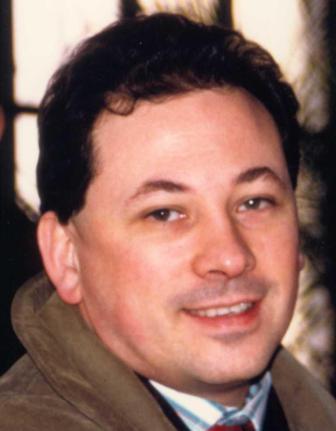
 +39 045 802 7980
+39 045 802 7980


